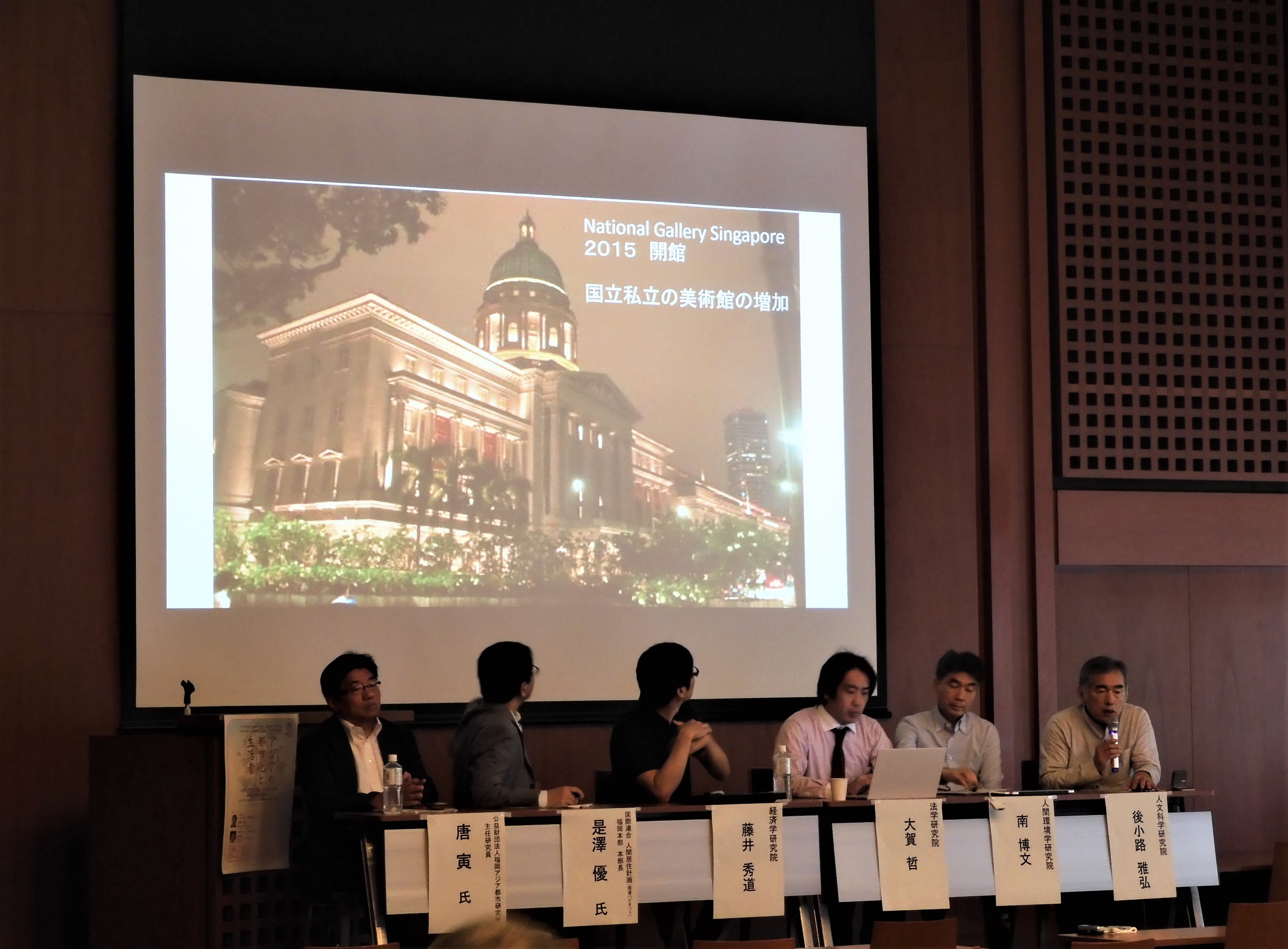イベント情報
Events Information
終了第3弾企画
アジアの都市化と生活者
2020.02.06
下記の内容で人社系協働研究・教育コモンズの第三弾企画「アジアの都市化と生活者」を開催いたします。皆さまご参加いただきますよう、お願いいたします。
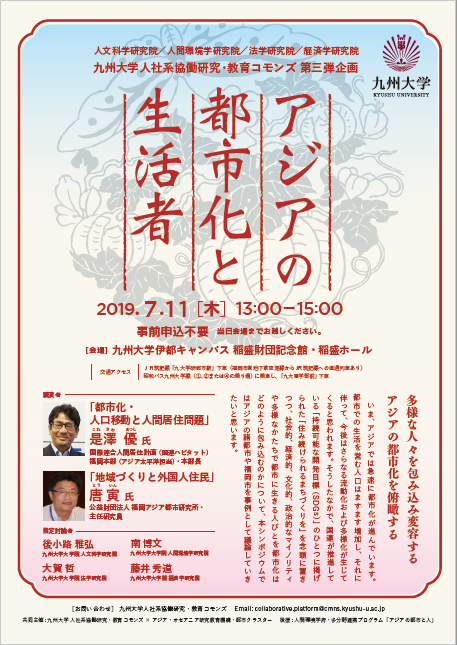
いま、アジアでは急速に都市化が進んでいます。都市での生活を営む人口はますます増加し、それに伴って、今後はさらなる流動化および多様化が生じてくると思われます。そうした中で、国連が推進している「持続可能な開発目標(SDGs)」のひとつに掲げられた「住み続けられるまちづくりを」を念頭に置きつつ、社会的、経済的、文化的、政治的なマイノリティや多様なかたちで都市に生きる人びとを都市化はどのように包み込むのかについて、本シンポジウムではアジアの諸都市や福岡市を事例として議論していきたいと思います。
このシンポジウムは、アジア・オセアニア研究教育機構のキックオフシンポジウムの一環として開催します。
▶ 日時:2019年3月15日(金)14時30分〜17時30分(14時開場)
▶ 講演者:
●「都市化・人口移動と人間居住問題」
是澤 優氏 国際連合人間居住計画(国連ハビタット)福岡本部(アジア太平洋担当)本部長
●「地域づくりと外国人住民」
唐 寅氏 公益財団法人 福岡アジア都市研究所 主任研究員
▶ 場所:九州大学伊都キャンパスイースト2号館1階D105講義室
参加申込は不要です。当日会場までお越しください。
交通アクセス:JR筑肥線「九大学研都市駅」下車(福岡市営地下鉄空港線からJR 筑肥線への直通列車あり)昭和バス九州大学線(①、②または④の乗り場)に乗車し、「九大イーストゾーン」下車(詳細はこちら)
実施報告
第3弾企画「アジアの都市化と生活者」(共催:アジア・オセアニア研究教育機構 都市クラスター)を実施しました
Urbanization and Residents in Asia symposium held on Ito Campus
2020.02.06
2019年7月11日(木)、人社系協働研究・教育コモンズの第三弾企画として「アジアの都市化と生活者」シンポジウムを本学伊都キャンパス稲盛ホールで開催しました。
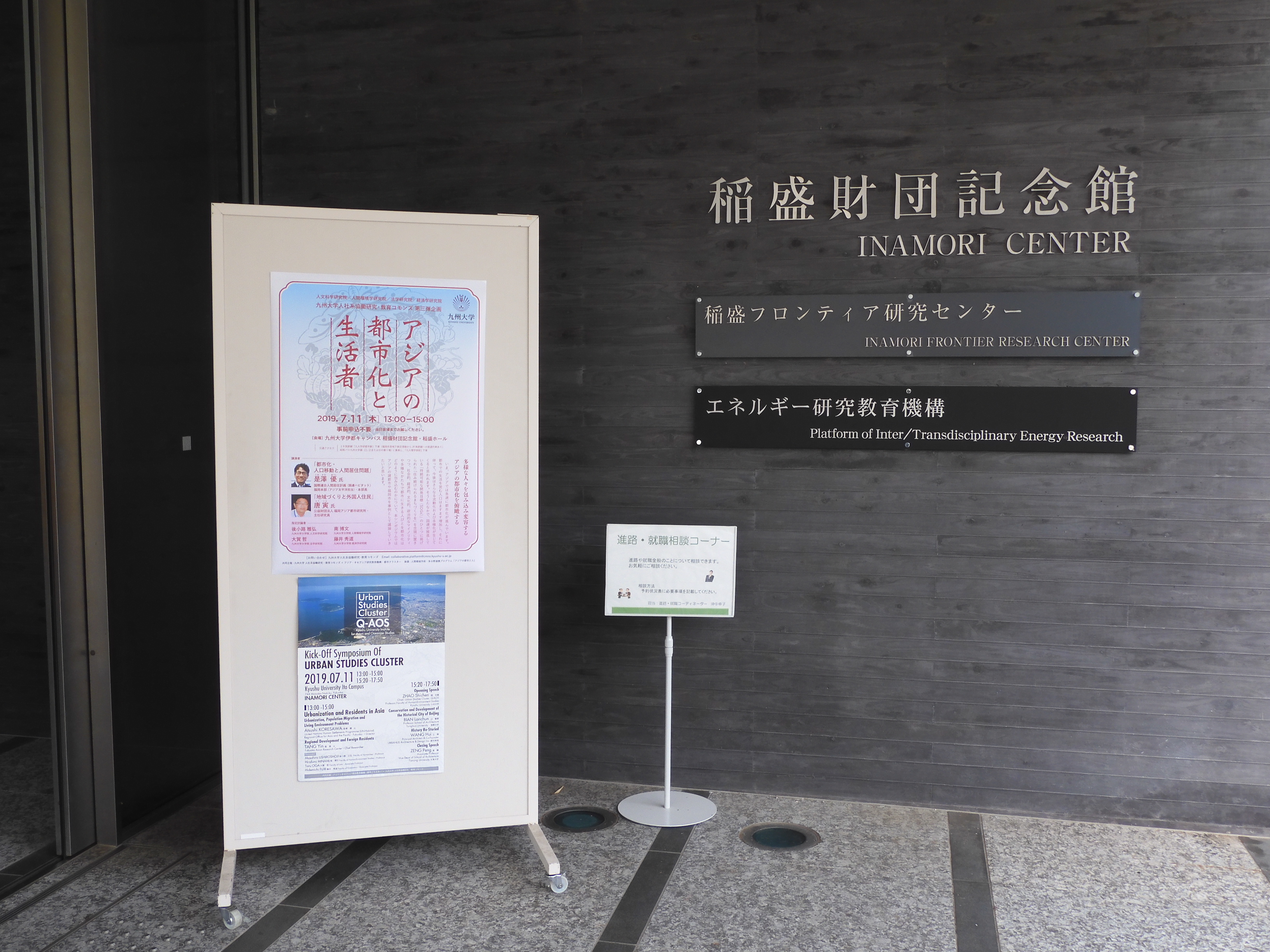
社会科学と歴史学の間の統合について、時代区分論の計量経済学的なアプローチ、社会科学者・歴史学者の存在論・認識論の重なり、社会科学者は因果推論へ、歴史学者は厚い記述へと向かう理由といった視点からご講演をいただきました。
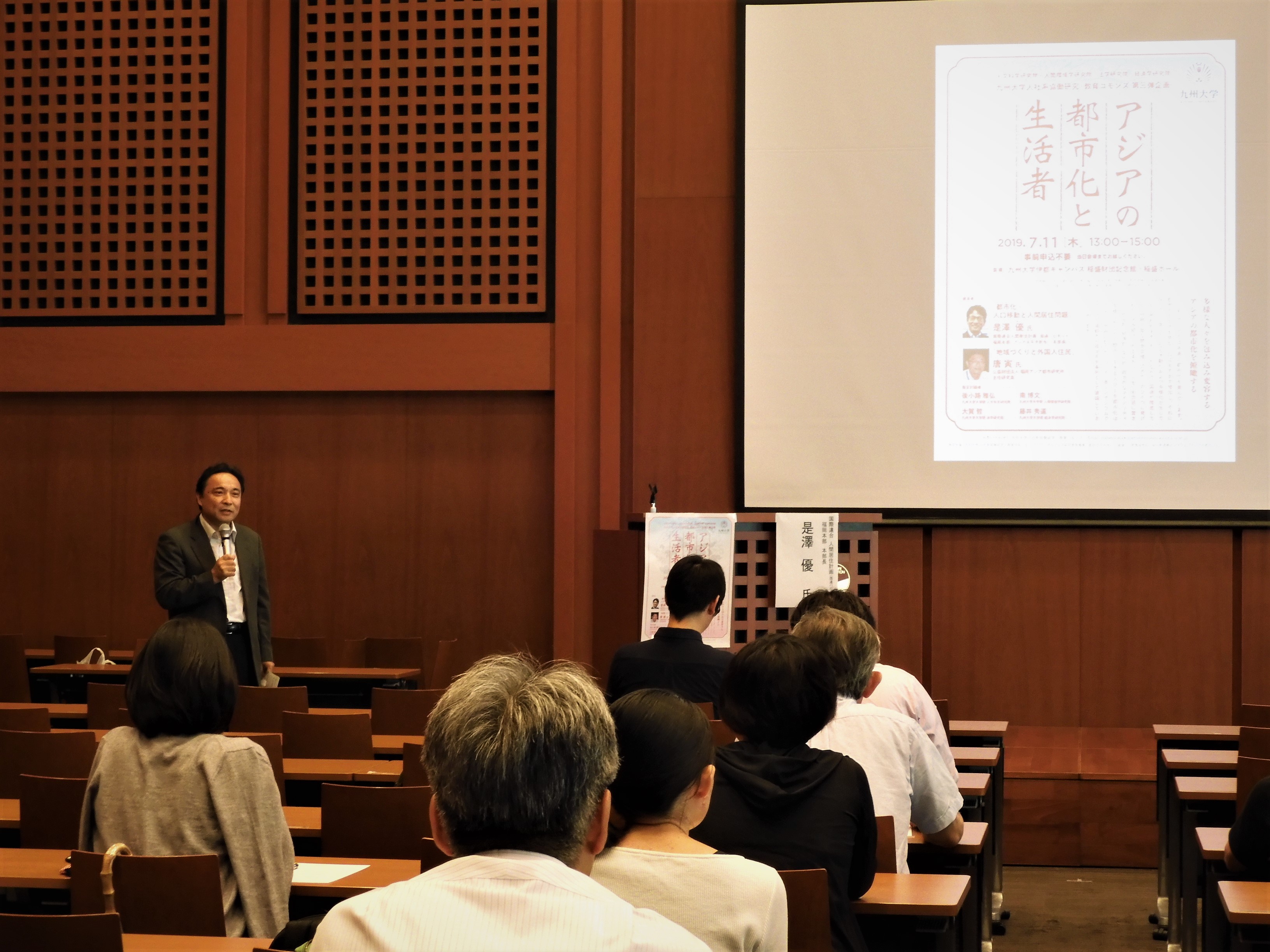
講演会には、学内外の研究者や学生約110名の方々にご参加いただきました。参加者からは「大変刺激的な報告でした」、「登壇された先生方の意見交換をより多く聞きたかった」などの感想のほか、前近代史や理系分野のコメンテーターを望む声もありました。
お忙しい中ご講演を賜りました保城先生、開催にあたり多大なご尽力をいただきました日本会計史学会の皆さまに、心よりお礼申し上げます。
With the aim of exploring issues concerning urban residents affected by the rapid urbanization in Asia, the Symposium on Urbanization and Residents in Asia was held at Inamori Hall on Kyushu University’s Ito Campus on July 11, 2019. The symposium was co-organized by the Collaborative Platform in Research and Education on Humanities and Social Sciences (http://commons.kyushu-u.ac.jp/), established in 2018, and the Urban Studies Cluster of the Kyushu University Institute for Asian and Oceanian Studies (http://q-aos.kyushu-u.ac.jp/), established in 2019.
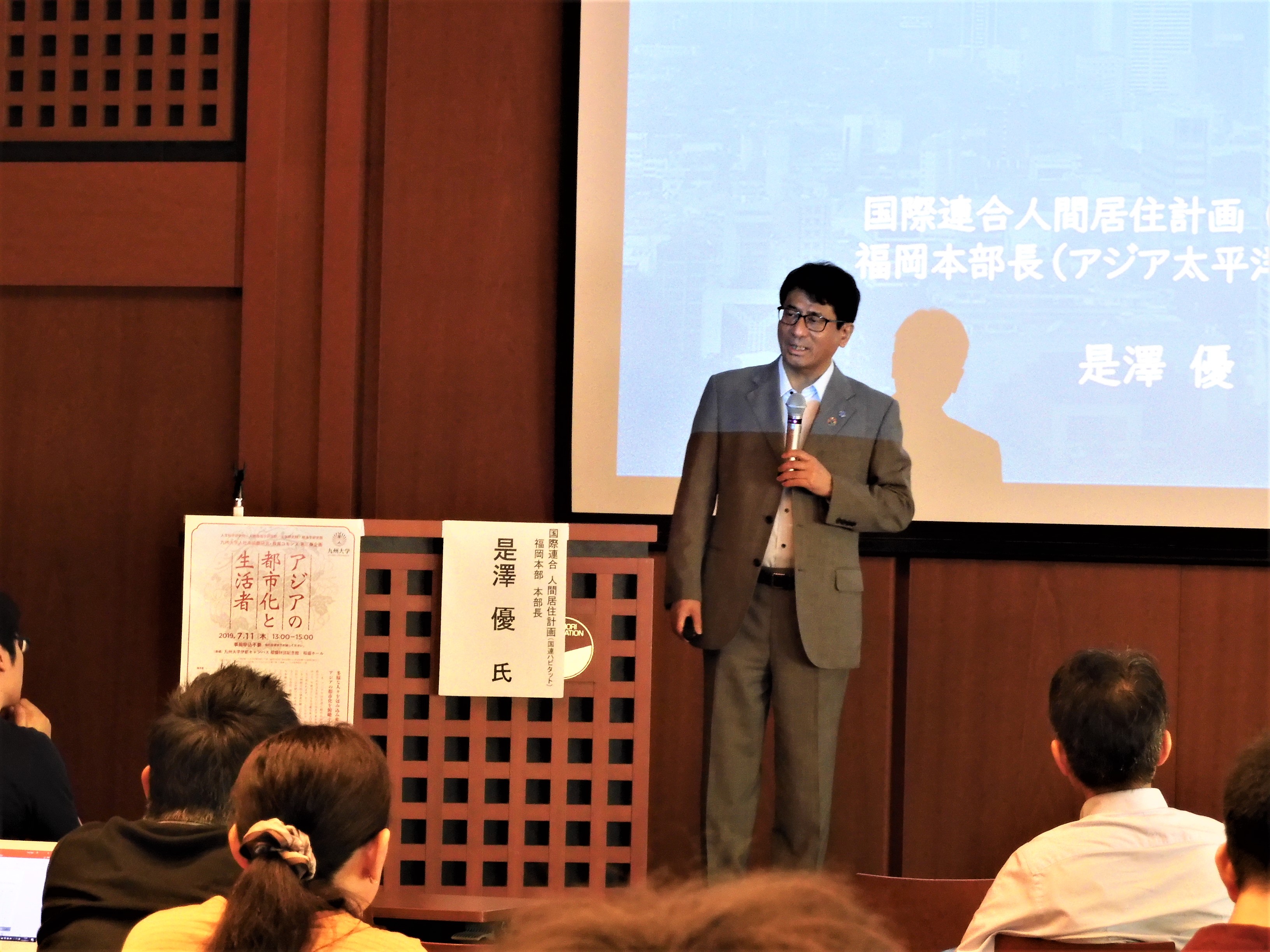
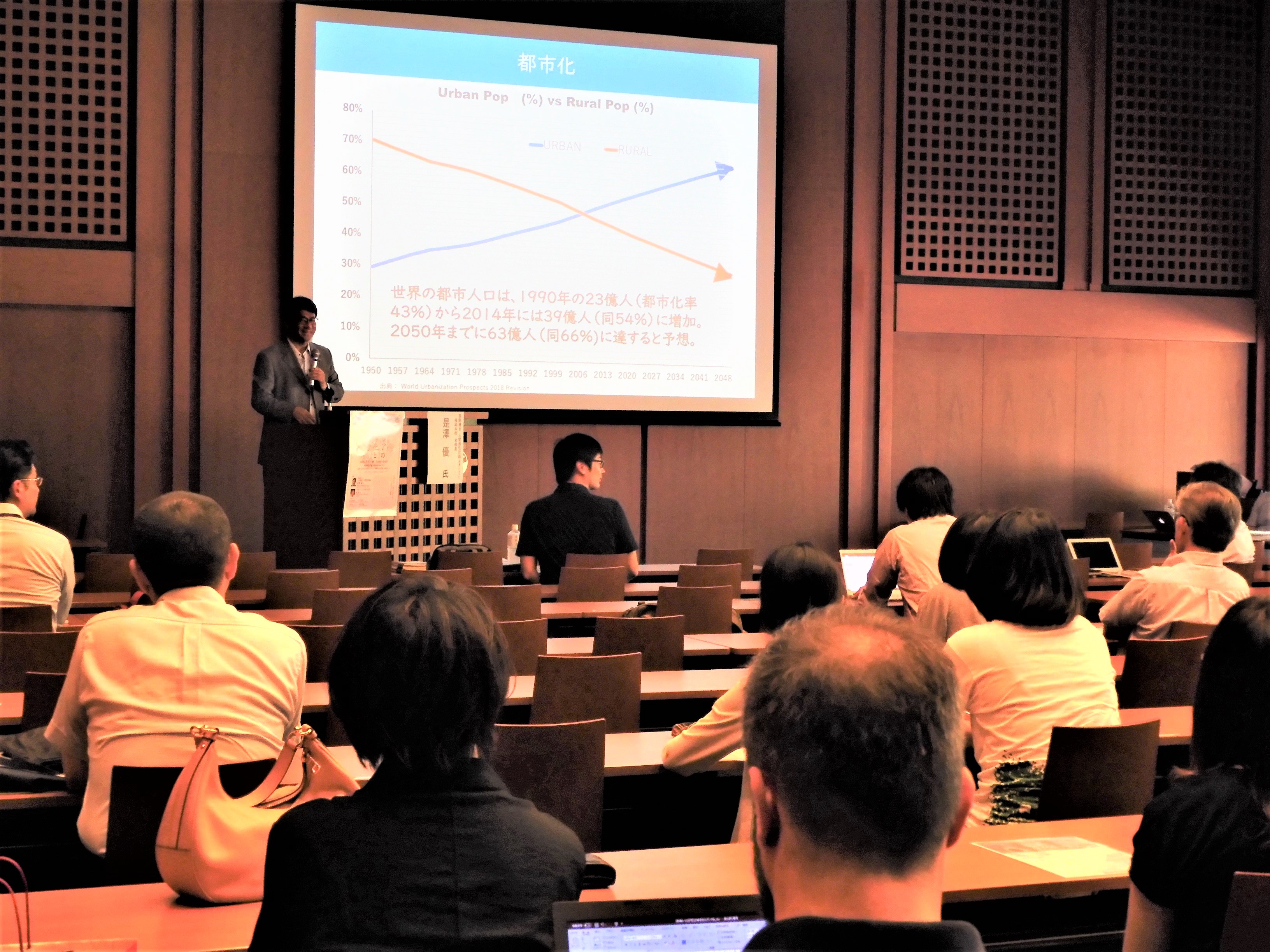
The commentary session featured commentaries on the two speeches from a wide range of disciplinary perspectives, including contemporary art by Professor Masahiro Ushiroshoji from the Faculty of Humanities, environmental psychology by Professor Hirofumi Minami from the Faculty of Human-Environment Studies, international politics by Associate Professor Toru Oga from the Faculty of Law, and environmental economics by Associate Professor Hidemichi Fujii from the Faculty of Economics.
